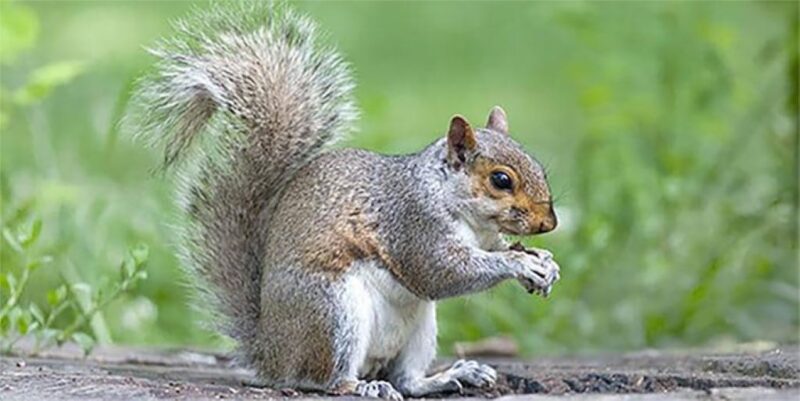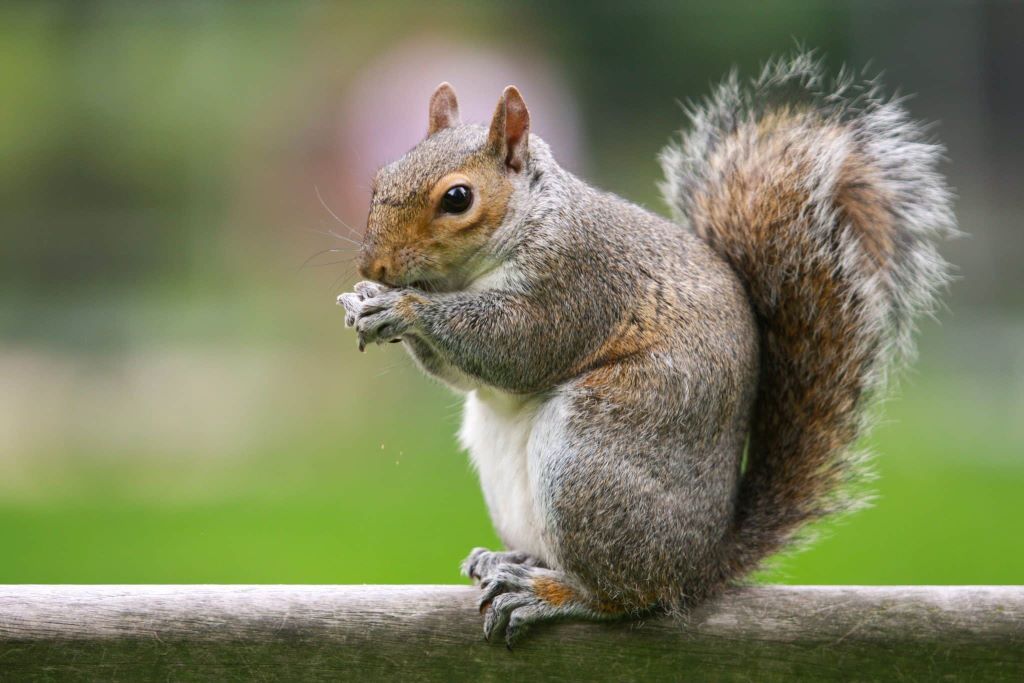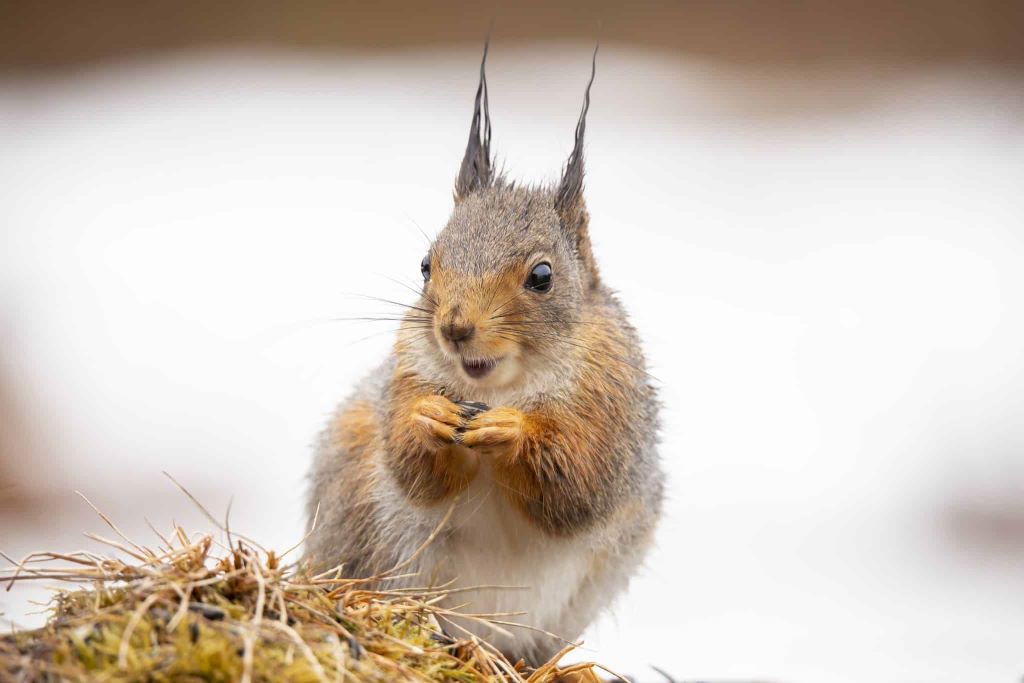If you’re wondering how to get rid of these pesky critters, there are a few effective methods you can try. Trapping is a common solution, where you can set up live traps to capture the squirrels and release them elsewhere. To get rid of ground squirrels, you can try trapping or using repellents to deter them from your property. Ground squirrels can be a nuisance when they invade your yard or garden, causing damage to plants and structures.
Alternatively, using repellents like predator urine or hot pepper spray can be effective in deterring ground squirrels. These methods tap into the squirrels’ natural aversion to certain scents and tastes, making your property less appealing to them. By employing such strategies, you can successfully control and eliminate ground squirrels from your surroundings, thereby protecting your property. For a more comprehensive guide on managing wildlife and safeguarding your home, visiting https://www.themadething.com/ can offer valuable insights and practical tips tailored to these specific challenges.
Identifying Ground Squirrels
Knowing how to identify ground squirrels is the first step in effectively managing these pesky creatures. By understanding their physical characteristics and behavioral patterns, you can implement the right strategies to get rid of them from your property. Let’s explore each aspect in detail.
Physical Characteristics
Ground squirrels, also known as burrowing squirrels, are small rodents that typically measure around 8 to 12 inches in length, including their tail. They have a stout body with short legs, sharp claws, and prominent whiskers. Their fur color varies, but most ground squirrels have a blend of brown, gray, and white patches, which helps them blend into their surroundings.
These rodents are easily distinguished by their bushy tails that are carried upright when running. The tail acts as a balance and communication tool, allowing them to make quick turns or alert others of potential danger.
Ground squirrels also have keen eyesight, which helps them spot nearby predators. Additionally, their sharp incisors are ideal for gnawing through vegetation, seeds, nuts, and even plastic containers.
Behavioral Patterns
Understanding the behavioral patterns of ground squirrels is crucial for effective control. Here are some key characteristics:
- Diurnal: Ground squirrels are active during the day, spending most of their time foraging for food, burrowing, and playing.
- Ground Dwellers: As the name suggests, ground squirrels live in burrows that they dig themselves. These burrows have multiple entrances and are often interconnected, providing the squirrels with escape routes from predators.
- Colonial Creatures: These squirrels are social animals and often live in colonies, ranging in size from a few individuals to several dozen. Their burrows may even house multiple interconnected families.
- Hibernation: Ground squirrels are not true hibernators but undergo long periods of torpor during the winter. They retreat to their burrows and live off stored body fat until warmer temperatures arrive.
- Agile Climbers: Although ground squirrels primarily dwell on the ground, they are also capable climbers. They may ascend trees or shrubs to forage for food or as a response to threats.
By identifying these physical traits and understanding their behavioral patterns, you’ll be better equipped to tackle the issue of ground squirrels on your property. In the next section, we will explore various control methods to effectively get rid of them.
Understanding The Risks Of Ground Squirrel Infestation
Property Damage
Ground squirrels might seem harmless with their small size and cute appearance, but these critters can wreak havoc on your property. From digging extensive burrows to gnawing on structures, ground squirrels can cause significant damage.
- The burrows they create pose a threat to the stability of your yard, garden, or even the foundation of your home.
- By tunneling through your lawn, they can uproot plants and damage irrigation systems, leading to a decline in your property’s aesthetics and value.
- Furthermore, ground squirrels have a penchant for chewing on various materials, including wood, plastic, and electrical wires. This behavior not only damages the items directly, but also poses a fire hazard if the wires are compromised.
When left unchecked, ground squirrel infestations can result in expensive repairs and reduced property appeal, making it crucial to address the issue promptly.
Health Concerns
While property damage is a significant concern, the health risks associated with ground squirrel infestations cannot be overlooked. These pests can pose several hazards to both humans and pets.
- Ground squirrels are carriers of ticks, fleas, and other parasites. These unwanted guests can infest your home, leading to potential health problems, such as allergic reactions and the transmission of diseases like Lyme disease or flea-borne typhus.
- Furthermore, ground squirrel droppings can contaminate soil, water sources, and even surfaces that come into contact with them. This contamination increases the risk of diseases spread through fecal matter, including salmonella, leptospirosis, and Hantavirus.
Protecting your family and pets from these health risks is crucial, making it essential to take effective measures to get rid of ground squirrels as soon as possible.
Natural Methods For Repelling Ground Squirrels
Keep ground squirrels away by utilizing natural methods, such as planting daffodils, narcissus, and hyacinths to repel them. Install barriers like fencing and wire mesh around garden areas, as these can also effectively deter ground squirrels. Additionally, using natural predator urine around the perimeter of your property can help keep these pests at bay.
Natural methods for repelling ground squirrels are an effective and environmentally friendly way to keep these pests away from your garden or property. Utilizing natural deterrents allows you to maintain a pest-free space without resorting to harmful chemicals or traps. In considering natural solutions, one might wonder, can squirrels eat bread? While bread isn’t harmful to squirrels, it’s not a preferred food for them, so it’s unlikely to attract them to your garden. Focusing on natural repellents that target their actual dietary preferences and behaviors is key to keeping your space squirrel-free.
Planting Deterrent Plants
One effective method for deterring ground squirrels is by planting plants that they find unappealing. Some examples include daffodils, fritillaries, and hyacinths. Additionally, the strong odor of plants such as garlic, onions, and marigolds can also repel these pests. A strategic layout of these plants around your garden can help discourage ground squirrels from making a meal of your vegetation.
Using Predator Urine
Another natural way to repel ground squirrels is by utilizing predator urine. Predator urine, such as that of foxes or coyotes, can convey a threat to ground squirrels, causing them to avoid the area due to the perceived danger of a nearby predator. This can be applied in liquid form around the perimeter of your property, or in granule form near areas where ground squirrels are most active. Incorporating these natural methods into your pest control strategy can help keep ground squirrels at bay while maintaining a safe and environmentally friendly environment for your plants and property.
Trapping And Removal Techniques
Trapping and removing ground squirrels can be an effective way to control their population and protect your garden or property. There are two main techniques for trapping and removing ground squirrels: live trapping and lethal trapping.
Live Trapping
Live trapping is a humane method that allows you to capture ground squirrels and release them far away from your property. Here are the steps to live trapping ground squirrels:
- Identify the areas where ground squirrels are active, such as burrow entrances or feeding areas.
- Set up live traps near these areas. Live traps can be purchased from garden supply stores or rented from animal control agencies.
- Bait the traps with appealing food, such as peanut butter or sunflower seeds.
- Ensure that the traps are properly set and have a one-way entrance to prevent the squirrels from escaping.
- Check the traps regularly, at least once a day.
- Once the squirrels are captured, transport them to a wooded area at least 5 miles away from your property, releasing them there.
- Keep the traps active for a few more days to capture any remaining ground squirrels.
Lethal Trapping
Lethal trapping is a more aggressive approach that involves killing the ground squirrels. It should only be used as a last resort when other methods have failed. Here are the steps to lethal trapping ground squirrels:
- Identify the areas where ground squirrels are active, such as burrow entrances or feeding areas.
- Set up lethal traps near these areas. Lethal traps can include snap traps or body-gripping traps.
- Bait the traps with appealing food, such as sunflower seeds or nuts.
- Ensure that the traps are properly set and placed in a way that prevents accidental harm to non-target animals.
- Check the traps regularly, as ground squirrels can quickly decompose if left in the trap.
- Dispose of the trapped ground squirrels responsibly, following local regulations and guidelines.
- Continue monitoring and resetting the traps until the ground squirrel population is under control.
Remember, trapping and removing ground squirrels might require patience and persistence. It’s essential to follow local regulations and guidelines when trapping or killing animals. Consider consulting with a pest control professional for guidance and assistance to ensure the effective and humane removal of ground squirrels.
Professional Pest Control Options
When it comes to dealing with a ground squirrel infestation, professional pest control options can provide effective and long-lasting solutions. Hiring exterminators and utilizing integrated pest management are two popular approaches that homeowners can consider. Let’s explore these options in detail:
Hiring Exterminators
Hiring professional exterminators can be a smart move. These experts have the knowledge and experience to effectively eliminate ground squirrels from your property. They will assess the extent of the infestation and develop a customized plan to tackle the problem. Using specialized tools and techniques, exterminators can safely and efficiently remove the squirrels while minimizing the risk of harm to humans and pets. Additionally, they can help identify and seal off potential entry points to prevent future infestations. By entrusting the task to trained professionals, you can rest assured that the problem will be handled with expertise and precision.
Utilizing Integrated Pest Management
Integrated Pest Management (IPM) is a holistic approach to pest control that focuses on prevention, monitoring, and intervention. It involves a combination of strategies to manage the squirrel population without solely relying on chemical pesticides. IPM emphasizes the importance of understanding the behavior and biology of the pests in question.
Here are some IPM strategies to consider:
- Habitat modification: Make your property less attractive to ground squirrels by removing food sources, trimming vegetation, and sealing potential entry points.
- Exclusion: Install barriers such as fencing or netting to keep ground squirrels out of specific areas.
- Trapping: Use humane traps to capture and release squirrels away from your property.
- Biological controls: Introduce natural predators or deterrents, such as placing owl boxes or using coyote urine repellent, to help manage the squirrel population.
By following an integrated approach, homeowners can address the root causes of the infestation and reduce the reliance on chemical treatments. This not only minimizes the environmental impact but also promotes long-term squirrel control.
Frequently Asked Questions On How To Get Rid Of Ground Squirrels
How To Identify Ground Squirrel Activity In Your Yard?
Ground squirrel activity can be identified by their burrows, tracks, and the presence of chewed plants and vegetables. Look for small holes in the ground, footprints, and damage to your garden or lawn. Additionally, ground squirrels are diurnal animals, so you may also spot them during the day.
What Are The Potential Dangers Of Having Ground Squirrels In Your Yard?
Having ground squirrels in your yard can pose several dangers. They can cause extensive damage to your garden, plants, and lawn. They also carry diseases such as plague and ticks, which can be a health hazard for humans and pets.
Additionally, their burrows can create tripping hazards and damage underground pipes and wires.
What Are Some Natural Remedies To Get Rid Of Ground Squirrels?
There are several natural remedies to get rid of ground squirrels. You can try using garlic or pepper sprays, as the strong smells deter them. Predator urine, such as that from a coyote or fox, can also deter ground squirrels.
Another option is to plant vegetation they dislike, such as daffodils or marigolds. Additionally, installing fencing or netting around your garden can help keep them out.
Conclusion
In your quest to eliminate ground squirrels, be patient and persistent. Discover our top ten gardening ideas, tips, and tricks, where we explore how implementing a combination of natural deterrents and exclusion methods can effectively manage pests without resorting to harmful measures.Remember to stay vigilant and adapt your strategies as needed to maintain a safe and squirrel-free environment.



